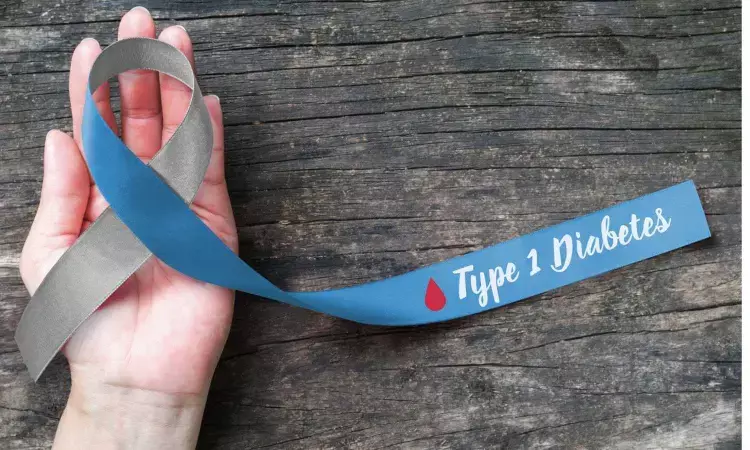- Home
- Medical news & Guidelines
- Anesthesiology
- Cardiology and CTVS
- Critical Care
- Dentistry
- Dermatology
- Diabetes and Endocrinology
- ENT
- Gastroenterology
- Medicine
- Nephrology
- Neurology
- Obstretics-Gynaecology
- Oncology
- Ophthalmology
- Orthopaedics
- Pediatrics-Neonatology
- Psychiatry
- Pulmonology
- Radiology
- Surgery
- Urology
- Laboratory Medicine
- Diet
- Nursing
- Paramedical
- Physiotherapy
- Health news
- Fact Check
- Bone Health Fact Check
- Brain Health Fact Check
- Cancer Related Fact Check
- Child Care Fact Check
- Dental and oral health fact check
- Diabetes and metabolic health fact check
- Diet and Nutrition Fact Check
- Eye and ENT Care Fact Check
- Fitness fact check
- Gut health fact check
- Heart health fact check
- Kidney health fact check
- Medical education fact check
- Men's health fact check
- Respiratory fact check
- Skin and hair care fact check
- Vaccine and Immunization fact check
- Women's health fact check
- AYUSH
- State News
- Andaman and Nicobar Islands
- Andhra Pradesh
- Arunachal Pradesh
- Assam
- Bihar
- Chandigarh
- Chattisgarh
- Dadra and Nagar Haveli
- Daman and Diu
- Delhi
- Goa
- Gujarat
- Haryana
- Himachal Pradesh
- Jammu & Kashmir
- Jharkhand
- Karnataka
- Kerala
- Ladakh
- Lakshadweep
- Madhya Pradesh
- Maharashtra
- Manipur
- Meghalaya
- Mizoram
- Nagaland
- Odisha
- Puducherry
- Punjab
- Rajasthan
- Sikkim
- Tamil Nadu
- Telangana
- Tripura
- Uttar Pradesh
- Uttrakhand
- West Bengal
- Medical Education
- Industry
Diabeloop control algorithm integrated in an external device improves glycemic control in type 1 diabetes patients

A new study by Ana Chico and team showing a first real-world trial of the closed-loop system, Accu-Chek Insight with Diabeloop, found a substantial improvement in glycemic control without major side events and a high level of patient satisfaction.
The findings of this study were published in Diabetes Technology & Therapeutics.
This research examined persons with type 1 diabetes (T1D) in real-world settings to assess the effectiveness, safety, and satisfaction of the closed-loop system Accu-Chek® Insight with Diabeloop (DBLG1).
The Diabeloop control algorithm, which has the ability to self-learn, controls insulin administration using CGM data, carbohydrate consumption, and physical activity. Participants
were T1D patients who had been utilizing DBLG1 for at least three months. At the beginning of DBLG1, as well as 1, 2, and 3 months later, glucometric parameters were examined. HbA1c was assessed prior to and after three months. The patients answered a satisfaction survey, and technical problems and serious consequences were noted.
The key findings of this study were:
1. There were 62 patients total (43 women; 44.2 11 years old; 24.6 12 years with diabetes;
40 using flash and 22 using continuous glucose monitoring (CGM); 45 using an insulin
pump and 17 using numerous daily injections).
2. Early in the first month, a considerable improvement was seen in the glucose measures
collected from the CGM: Time within the range (%TIR) 70–180 mg/dL; time above
range level 1 (%TAR1) 180–250 mg/dL; time above range level 2 (%TAR2) > 250
mg/dL; time below range level 1 (%TBR1) 54–70 mg/dL; time below range level 2
(%TBR2) 54 mg/dL; %CV, median glucose, and %GMI.
3. Additionally, HbA1c dramatically dropped.
4. There were no major adverse effects or immediate problems.
5. Regardless of previous therapy or the kind of glucose monitoring device utilized, the
same improvement was seen.
6. 21 patients had technical problems, and three patients stopped using DBLG1.
7. Patient satisfaction was good overall.
8. Adjustments to the parameters were often made to make them more aggressive.
In conclusion, the administration of DBLG1 was safe and significantly improved glycemic control and patient satisfaction.
Reference:
Chico, A., Navas de Solís, S., Lainez, M., Rius, F., & Cuesta, M. (2023). Efficacy, Safety, and Satisfaction with the Accu-Chek Insight with Diabeloop Closed-Loop System in Subjects with Type 1 Diabetes: A Multicenter Real-World Study. In Diabetes Technology & Therapeutics (Vol. 25, Issue 4, pp. 242–249). Mary Ann Liebert Inc. https://doi.org/10.1089/dia.2022.0449
Neuroscience Masters graduate
Jacinthlyn Sylvia, a Neuroscience Master's graduate from Chennai has worked extensively in deciphering the neurobiology of cognition and motor control in aging. She also has spread-out exposure to Neurosurgery from her Bachelor’s. She is currently involved in active Neuro-Oncology research. She is an upcoming neuroscientist with a fiery passion for writing. Her news cover at Medical Dialogues feature recent discoveries and updates from the healthcare and biomedical research fields. She can be reached at editorial@medicaldialogues.in
Dr Kamal Kant Kohli-MBBS, DTCD- a chest specialist with more than 30 years of practice and a flair for writing clinical articles, Dr Kamal Kant Kohli joined Medical Dialogues as a Chief Editor of Medical News. Besides writing articles, as an editor, he proofreads and verifies all the medical content published on Medical Dialogues including those coming from journals, studies,medical conferences,guidelines etc. Email: drkohli@medicaldialogues.in. Contact no. 011-43720751


